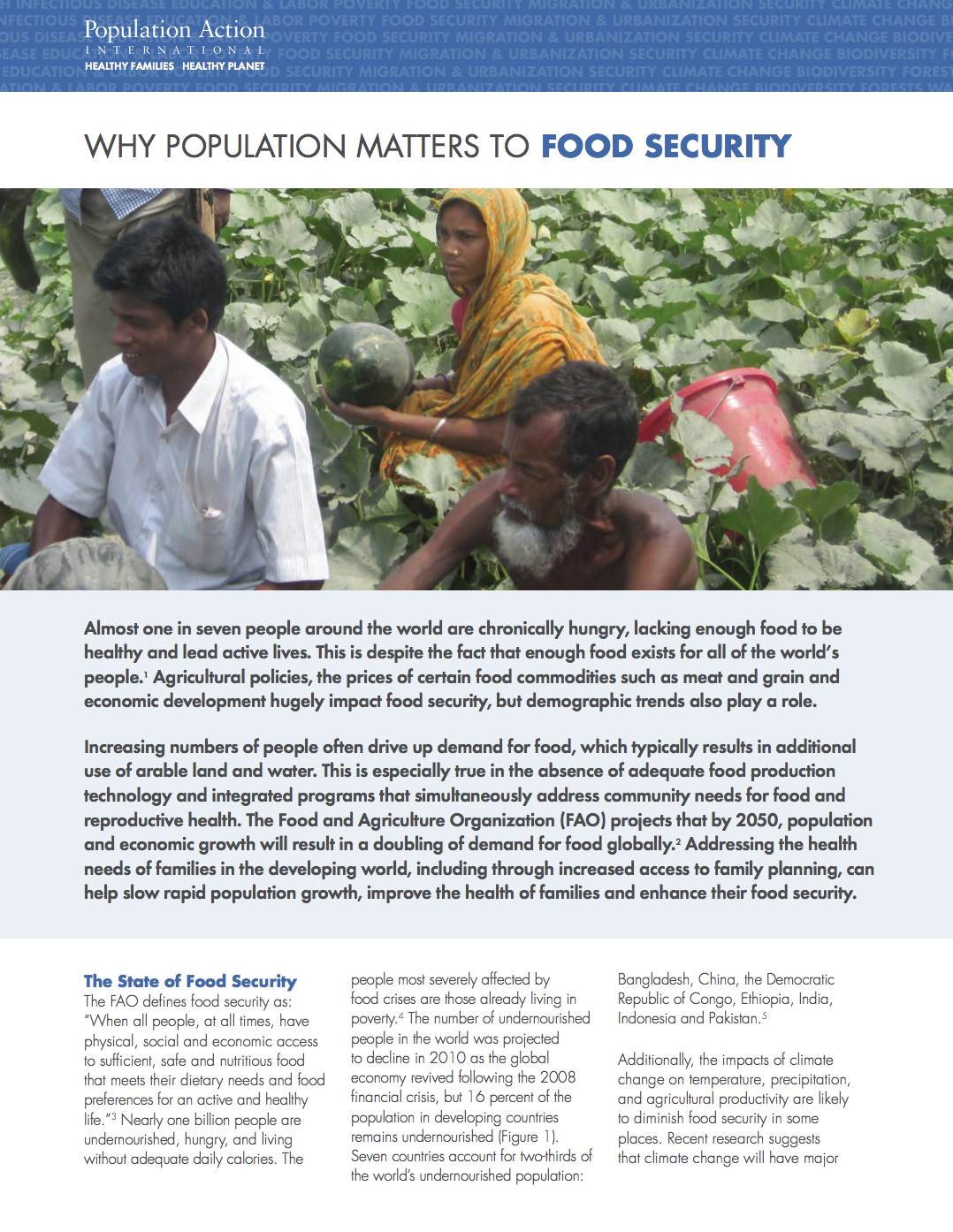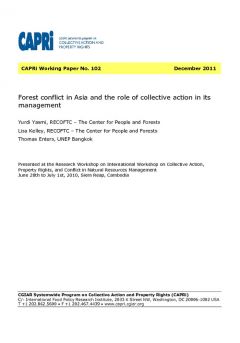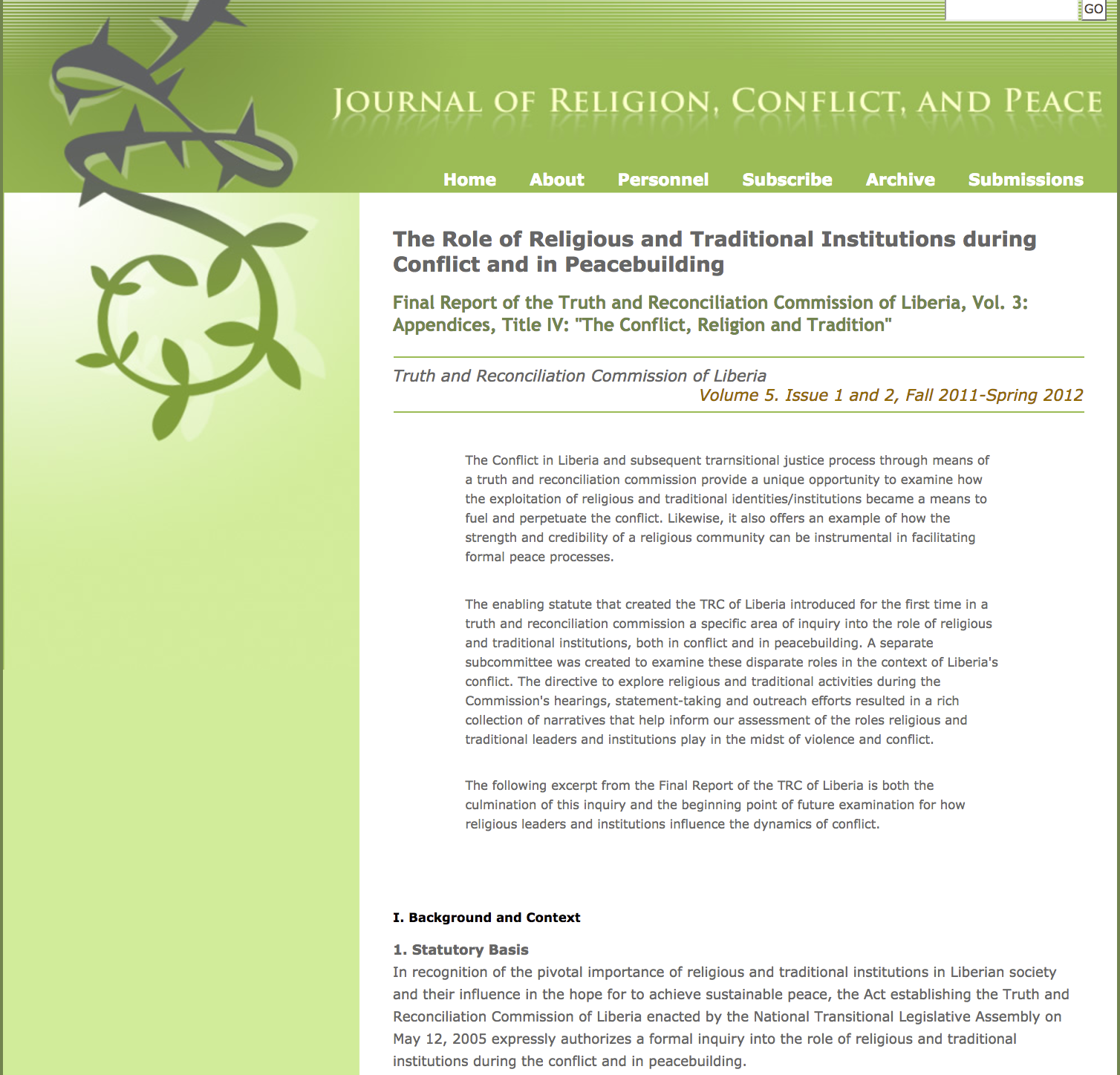Why Population Plays a Role in Food Security
Almost one in seven people around the world are chronically hungry, lacking enough food to be healthy and lead active lives. This is despite the fact that enough food exists for all of the world’s people.1 Agricultural policies, the prices of certain food commodities such as meat and grain and economic development hugely impact food security, but demographic trends also play a role.








